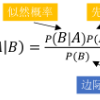There are over one million apps on Google Play Store and over half a million publishers. Having such a huge number of apps and developers can pose a challenge to app users and new publishers on the store. Discovering apps can be challenging if apps are not correctly published in the right category, and, in turn, reduce earnings for app developers. Additionally, with over 41 categories on Google Play Store, deciding on the right category to publish an app can be challenging for developers due to the number of categories they have to choose from. Machine Learning has been very useful, especially in classification problems such sentiment analysis, document classification and spam detection. These strategies can also be applied to app categorization on Google Play Store to suggest appropriate categories for app publishers using details from their application. In this project, we built two variations of the Naive Bayes classifier using open metadata from top developer apps on Google Play Store in other to classify new apps on the store. These classifiers are then evaluated using various evaluation methods and their results compared against each other. The results show that the Naive Bayes algorithm performs well for our classification problem and can potentially automate app categorization for Android app publishers on Google Play Store
翻译:在Google Play Store上,有超过100万个应用程序,还有超过50万个出版商。拥有如此众多的应用程序和开发商可能对该商店的用户和新出版商构成挑战。如果应用程序在正确的类别中没有正确公布,发现应用程序可能会具有挑战性。如果应用程序在正确的类别中被正确公布,从而降低软件开发商的收入,发现应用程序可能具有挑战性。此外,在Google Play Store上,有超过41个分类,决定发布应用程序的正确类别对于开发商来说可能因其必须选择的类别数量而具有挑战性。机器学习一直非常有用,特别是在情绪分析、文件分类和垃圾检测等分类问题方面。这些战略也可以应用到Google Play Store的分类中,以建议使用其应用程序的详细信息对出版商进行适当的分类。在这个项目中,我们用Google Play Store上开发商应用程序的开放元数据对Nive Bayes GaySallergress进行了两个变异的变体,以便对仓库的新应用程序进行分类。这些分类然后使用各种评价方法,并比较其结果进行评估。结果显示Naive Bayes 运算算出我们的分类问题,并可能为Googleastory Strealation and Appalationalationsalationsalpeatalationalation。




